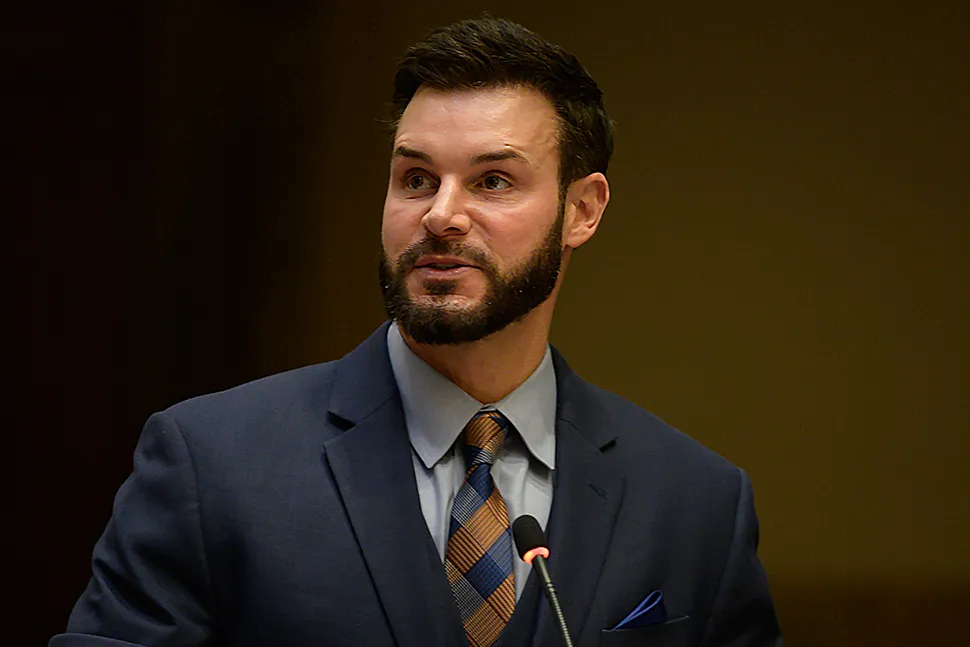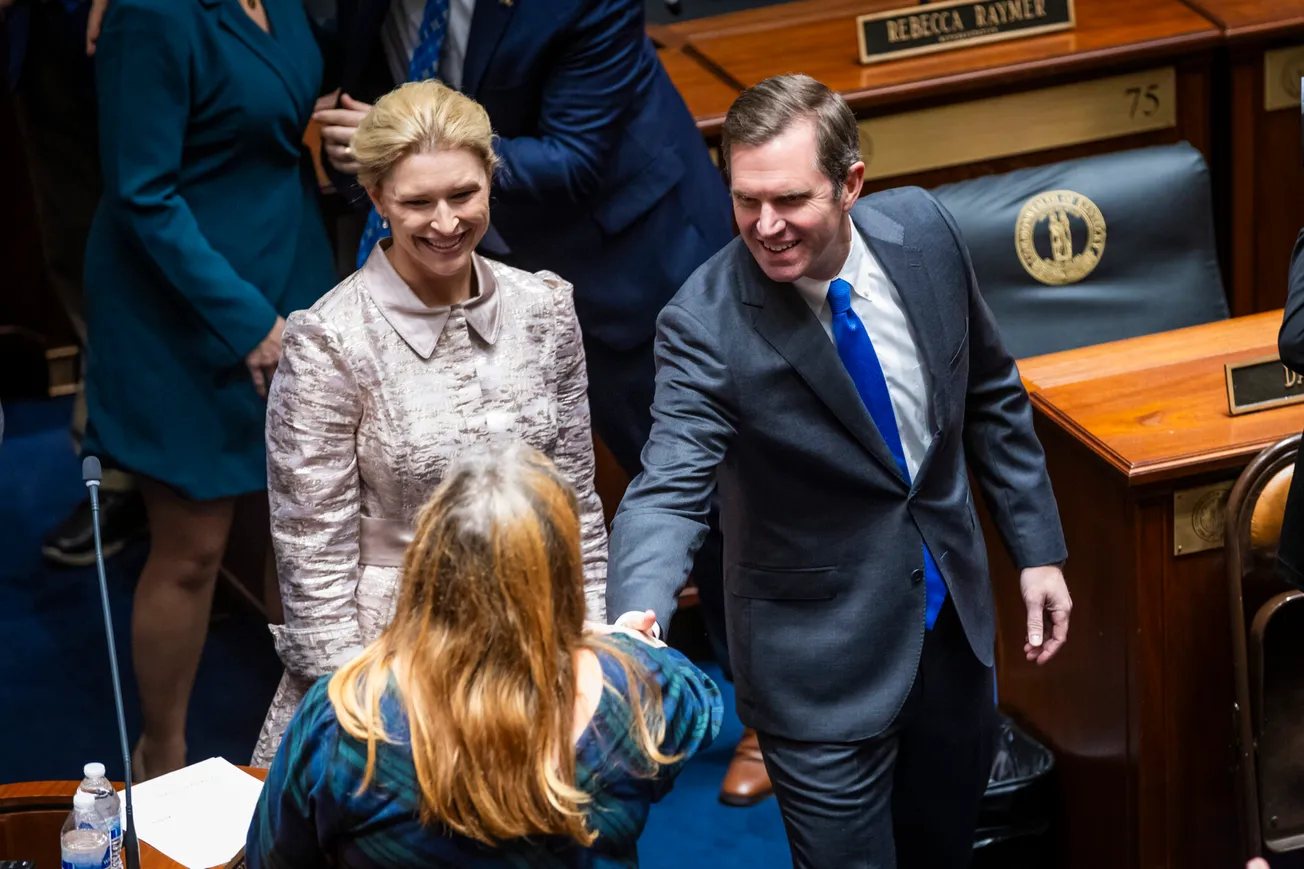By BERRY CRAIG
If you read the headlines, you would think Democrats really messed up last Tuesday, and the ceiling is caving in on them.
“Reeling Democrats see threat to House and Senate control as Republicans crack their 2020 coalition” – Washington Post headline.
“The calamity facing Joe Biden and the Democrats” – The Economist headline.
“Takeaways from Tuesday’s elections: Bad omens for Democrats.” - Associated Press headline.
But Democratic agony and Republican ecstasy from last Tuesday might be a tad premature.
The headlines aren't the reality
First, Virginians did what they’ve done all but once since 1977 – elect a governor not from the sitting president’s party. The sole exception was Democrat Terry McAuliffe in 2013. He was Tuesday’s loser to Republican Glenn Youngkin in a close vote.
The vote was also close in New Jersey, but Gov. Phil Murphy won. He’s the first Democratic incumbent to notch a second consecutive term since Brendan Byrne in 1977.
On Friday, the president and his party got a double-helping of good news: a far better than expected October jobs report, and the Democratic-majority House — maybe scared by Tuesday’s vote — got its act together and approved the $1.2 trillion Senate-passed “hard” infrastructure bill.
There’s a ton of time between now and next November for voters to reap the benefits of that legislation plus the Build Back Better bill, some variant of which seems more likely to pass, too.
Add in evidence that the COVID-19 pandemic is waning — thanks largely to mask mandates, which most Democrats support — and those dire election headlines might end up alongside “Dewey Defeats Truman.”
And some analysts saw through the sewage, the cynicism, and the deception
Meanwhile, everybody and his dog — as we say in deepest western Kentucky — is doing election takeaways. Much of the media is focusing on Youngkin’s decision not to openly run as a Trump toady, though his politics are Trumpian. He publicly kept the president at arm’s length; he wanted voters to see him as a loveable Mr. Rogers, not a scary MAGA madman.
The scam didn’t seem to be working until Youngkin started demonizing Critical Race Theory. That fired up the white folks who still dote on The Donald, who endorsed Youngkin and urged his base to turn out for him. Simultaneously, he kept steering clear of Trump to convince swing voters that he wouldn’t be a Trump clown like Abbott and Costello ... er, DeSantis.
Charles M. Blow of the New York Times and the Washington Post’s Greg Sargent saw through the cynicism.
“Youngkin homed in on critical race theory, even though critical race theory, as Youngkin imagines it, isn’t being taught in his state’s schools,” Blow wrote on election night. (CRT is taught in graduate and law schools, not grade- and high schools.) “But that didn’t matter. There are people who want to believe the fabrication because it justifies their fears about displacement, powerlessness, and vulnerability.
“In fact, the frenzy around critical race theory is just the latest in a long line of manufactured outrages meant to tap into this same fear, and the strategy has proved depressingly effective.”
Concluded Blow: “Some of the very same people who voted against Donald Trump because they were exhausted and embarrassed by him turned eagerly to Youngkin because he represented some of the same ideals, but behind a front of congeniality.
“Youngkin delivered fear with a smile.” Wrote Sargent on election eve: “With Virginia voters set to elect a governor, Republican Glenn Youngkin’s final messages are positively overflowing with sunny calls for unity.
“One closing ad features footage of African American families smiling and strolling as Youngkin piously claims his campaign has been about ‘parents who want a better education for their kids.’ (Republican Lieutenant Gov.-elect Winsome Sears, who is Black and the first woman of color to be elected to a statewide office in Virginia, is an ardent Trumper who also denounced CRT on the campaign trail.)
“It’s a repulsively cynical finale, after a campaign built heavily around stoking white grievance with attacks on phantom critical race theory in schools and torquing up the base by feeding Donald Trump’s lies about our election system.
“But this duplicity has benefited from a hidden assist. For months, Youngkin and his allies have pumped that raw right-wing sewage directly into the minds of the GOP base, behind the backs of moderate swing voters, via a right-wing media network that has no rival on the Democratic side.”
Doubtless, Republican candidates will keep pumping the sewage in the midterm hustings, though how openly will be situational.
In some congressional districts, Younkin-style “kinder, gentler” Trumpians will manipulate the pumps to try to disguise the effluent. Others of the white nationalist Greene-Gaetz-Gohmert persuasion will make the muck fly, flat out.
Writing in New York magazine on election day, Zak Cheney-Rice echoed Sargent: “For most of the campaign, Democrat Terry McAuliffe seemed to be in the driver’s seat, until Youngkin, the Republican, started ranting about CRT in schools. The polling gap closed. CRT panic had recently gripped parts of Virginia, which Joe Biden won by ten points in 2020. It was part of an electoral strategy cooked up last year by conservative activists, who started using CRT as a catch-all term for the supposed excesses of the left — anything ‘crazy in the newspaper,’” according to Christopher Rufo, the Manhattan Institute fellow who pioneered its usage. “Since then, CRT has been Astroturfed into a local cause célèbre, applied most often as a criticism of school curricula — including historically accurate lessons about Black enslavement — that might make white children feel bad.”
As election day drew nigh, Cheney-Rice “saw a post describing 'critical race theory’ as ‘the next [immigrant] caravan,’” adding, “Those terms would’ve been gibberish to the average voter four years ago. Today, they’re part of our miserable lingua franca for talking about politics not only in Virginia, but across the United States.”
He found CRT and “caravan” an apt comparison. “In recent elections, GOP politicians and conservative media have spent a lot of time and energy casting Central American migrants as invading hordes, only to abandon the issue once votes were tallied.”
On the campaign trail, Youngkin vowed to ban CRT from K-12 schools on his first day in office, a message tailored to resonate with rural white Trumpians and well-heeled suburban white flight folks. In his election night victory speech, Youngkin didn’t mention his pledge. His remarks were all aw-shucks smiles, puppies, and rainbows.
Cheney-Rice wrote that “like CRT, caravan panic was an electoral ruse — a buzzy non-threat evoked to frighten voters. But if the link between the caravan and CRT neatly summarized the GOP’s cynicism, it also suggested a common misapprehension. The idea that the outcome in Virginia would dictate the Republicans’ CRT strategy moving forward misses how long it’s already been happening, and how much more of it we were going to see regardless of Tuesday’s outcome.”
--30--








